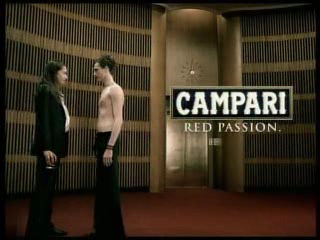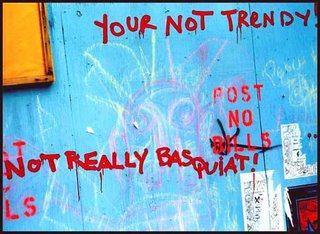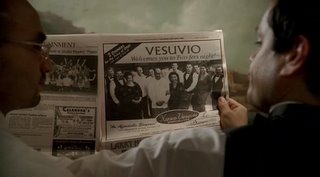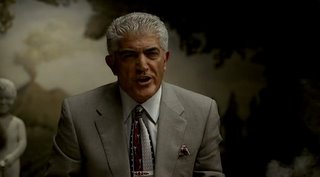
Wow, that episode of the Sopranos was everything I expected from last week and more. I have always liked the state motto of New Hampshire, because its a simple plainspoken English imperative, shockingly libertarian for such a seemingly conservative place. The Commonwealth of Massachusetts, OTOH has a tongue-twisting Latin motto, about peace under a sword, very ominous and neoclassical. So I had high expectations that we would not only go to NH, but also see the state logo on a license plate...which were brillantly met in the final scene of this episode.
I was a bit concerned because when we first see Vito, he's with his putative goomah in a house on the Jersey shore. She is a rather bitchy Latina, although justifiably as he won't even step outside to get a tan with her. Upon meeting associates willing to take him in to Tony, Vito ends up running away to the Granite State (to find a cousin). After a call from his brother-in-law Phil Leotardo, he tosses his phone out the window.

And when his Caddy breaks down in the middle of the night, he happens upon the most picturesque New England village. Here you can wake the owner of a bed-and-breakfast in the middle of the night and she will be all smiles. At the local diner, a gay couple walks in and is casually accepted. The park he walks through looks exactly like this one in Concord. It seemed pretty real, but just a little too gay to be anywhere in NH other than Ogonquit Beach or maybe Portsmouth.
Also Carm had some minor developments in her story, but which look equally as portentous. Her crumbling real estate dreams contrast with Angie Bompensiero's thriving body shop, where she is doing backroom deals with Benny Fazio and Patsy Parisi for cut-rate airbags (and as Ro reveals, loansharking). In fact, the wives serve as almost this mirror chorus of their husbands, like Gab Dante lives up to her name by spreading the Vito rumor. Angie rubs it in how inconsequential their lives are compared to her wheeling and dealing. I'll bet Carm rats Angie out to Tony for not kicking up to him.
Can I just say how much I loved Melfi gently wearing away the edges of Tony's homophobia when he brings it up to her: first he brings up his favorite argument, that he thinks gays 'go around in pity for themselves'; Melfi returns that she doesn't think they see this as a flaw; Tony then argues they were born that way but not in his neighborhood. Melfi then asks for his personal thoughts on homosexuality: he goes from its digusting to getting hot at the thought of a lesbian scene involving Jennifer Beals. Then he rationalizes with a paean about 'consenting adults' but gives it a slippery slope twist:
Don't forget, I'm a strict Catholic. I agree with that Senator Sanatorium. He said if we let this stuff go too far and pretty soon we'll be fucking dogs.

Melfi then calls him out on his ambivalence and he returns with the effect this will have on business deals. Melfi ever so gently points out that with many of his associates having served time, surely a few committed sodomy in prison. Then she chuckles when he says they get a pass for that. Soon the hypocrisy causes him to express a live and let live philosophy (
'part of me says: God Bless! Ah Salud! who gives a shit') and contemplate second chances. Personally I love how guys who always greet each other with kisses on the cheek can be so homophobic. Oh and Tony's 'good boy' comment about his mother while Carm was rubbing Vitamin E on his belly...*sniffle*.
And then how he turns around all of this internalized criticism from her and uses it to defang an ambitious colleague looking to whack Vito for the 'family honor' with a scoff about high drama and a knowing mention of 'this ain't the first time'. The mobster's reactions were all horrifically absurd, like Paulie complaining that he's been betrayed. And how it all changes when Finn reveals Vito was the one giving head. "I feel like I been stabbed in the heart!' And when Tony suggests they consider things before they whack him, Paulie stands up and yells 'what is there to think about!' (Bobby, notably agrees immediately and doesn't laugh at Christofuh's joke about 'greasing the union'.) Tony yells back 'you gonna take care of his kids, when he's gone!'

Later, when redistributing Vito's construction business, he defends Vito again as his best earner.
Christofuh also had a great moment when Tony asks him if he thinks Ahmed and Mohammed were 'al-qaedas': they can't be terrorists because one of them owns a 'springer spaniel'. The logic being they are Americanized to keep dogs as pets, unlike back in the Middle East. And then the extra long take as he contemplates the logic of this. His slide into stupid may be chemical: without Ade, who would keep him from the smack?
Meadow is still whiny, although Finn became infinitely more sympathetic when he called her on her 'poverty of the mezzogiorno' bullshit. Johnny Macaroni. heh. After all, his teifying before the intimidating panel of wiseguys in the back of Satriale's, was a direct result of Meadow shooting off her mouth to her mother about something Finn told her in the strictest of confidence. The overhead shot with him all isolated was priceless. He was fully surrounded at the table and, unlike Princess Bing, he knows what these guys are capable of. "It'll be okay, get him to pay for some therapy"
Riiiight. And then Tony dismisses him like a little child with some money for candy. He was in an uncomfortable position, but it was good that they displayed some conflict and awareness of the consequences of ratting out Vito.
The construction worker who found Vito's phone was hilarious, mostly because he didn't do what every other show would do and use him to speed the plotline along. Nope, instead he's as unhelpful as possible, due to Tony's attitude.
Well an upcoming episode is "Johnny Cakes"(s6#10), which given its appearance in this week's episode does not bode well for our favorite gay mobster. (edit: although next week's episode "Luxury Lounge" has in its Wikipedia synopsis:
Vito finds home in a new world. :-) And the ep synopsis says something about Vito being wowed by an act of heroism. After the events last night, here's my prediction: Phil comes to NH in his usual hotheaded vengeance mode; he attempts to whack Vito; Vito begs for his life and a small-town New England cop or a state trooper (alot of this is wishful thinking) sees Phil being a murderous prick and blows him away. I cringe at the oily way he leans on Vito's wife, smoothly ignoring her protest about how Vito shouldn't be thrown out like garbage. And Vito opens an antique store with his new lover, muscling out the competition behind the scenes. Well, we can all dream can we?
Español | Deutsche | Français | Italiano | Português| Ch| Jp| Ko
 (photo via Yahoo News/AP)
(photo via Yahoo News/AP)























































